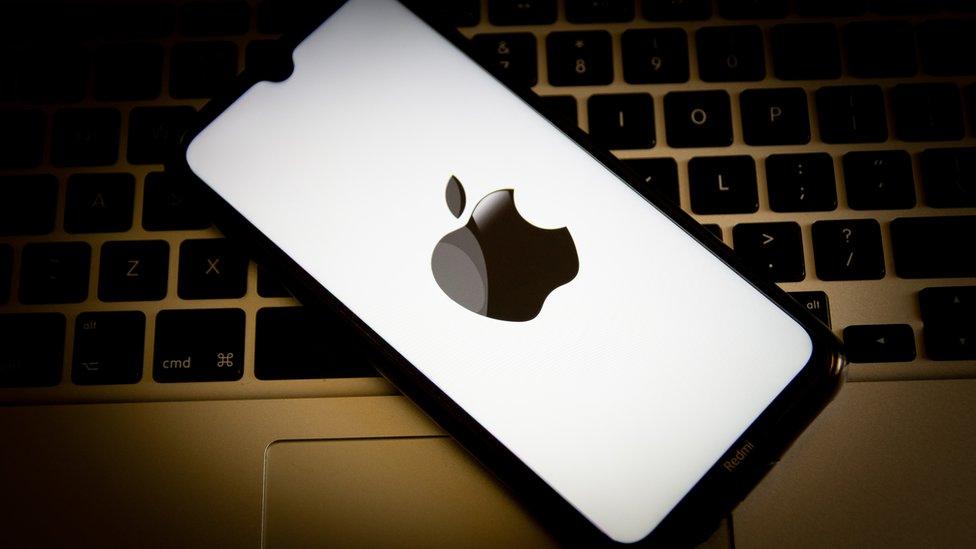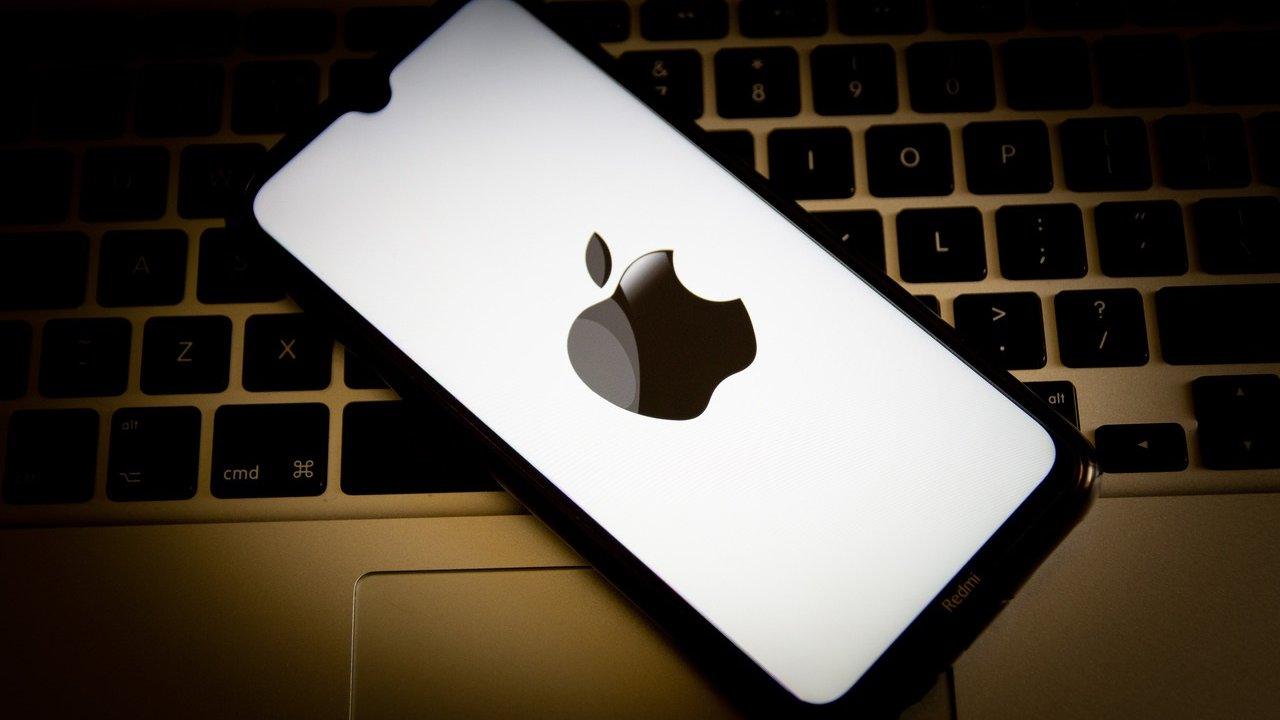Apple's UK users deserve app price compensation, claim says
- Published

Millions of Apple's UK customers should be compensated for breaches of competition law, a legal action claims.
The case, filed with the UK Competition Appeal Tribunal (CAT), alleges Apple's 30% commission on app sales is an abuse of dominance and unlawful.
Organisers are aiming to include nearly 20 million UK users in the collective action, if it is approved.
Those behind the claim say they intend to seek damages of up to £1.5bn. Apple said the legal action was "meritless".
Collective action
While the UK does not have the same kind of class-action legal structure as the US, so-called "optout" claims have been allowed in the CAT since 2015, meaning all affected people could be covered unless they decide to exclude themselves.
And anyone in the UK who has bought paid apps, paid subscriptions, or other in-app purchases on an iPhone or iPad since October 2015 is included in the claim.
However, such a collective action needs to be approved by the tribunal before proceeding.
While the 30% Apple cut on sales is already facing challenges from other companies, the group behind this claim say it is customers who have ultimately paid the fee.
It alleges:
Apple deliberately shuts out potential competition
it requires ordinary users to use Apple's own payment-processing system
doing so generates "unlawfully excessive levels of profit"
the charges are "an unlawful raid on Apple's customers' purses"
King's College London digital-economy lecturer Dr Rachael Kent, who is taking the case to the tribunal and representing all those affected, said Apple "charges entry and usage fees that are completely unjustified".
"This is the behaviour of a monopolist and is unacceptable," she said.
Apple's estimates of its costs for running the App Store were "just $100m" (£71m) - but it had made $15bn (£10.6bn) last year.
"Apple achieves this by slapping unjustified charges on its users," Dr Kent said.
"It would not be able to impose these exorbitant charges if competitor platforms and payment systems were allowed to compete."
The rest of the team behind the case includes law firm Hausfeld and Co and Vannin Capital.
Vannin would be paid - a proportion of the total compensation, from "damages that are left unclaimed" - only if the case succeeded, the group said, "putting their money at risk for a lengthy legal battle with one of the wealthiest corporations in the world".
"Claimants will not lose out," the group added.
In a statement, Apple said: "We believe this lawsuit is meritless and welcome the opportunity to discuss with the court our unwavering commitment to consumers and the many benefits the App Store has delivered to the UK's innovation economy."
It highlighted that the 30% cut is "very much in the mainstream of those charged by all other digital marketplaces", and said 84% of apps on its App Store were free - so developers paid nothing. It also argued that the "vast majority" of developers paid a commission of 15%, in an apparent reference to its recent decision to cut rates on the first $1m.
Legal battle
Apple's competitor Google also charges a 30% fee, along with several other digital platforms.
But the group said it was "not in a position to comment on Google at the moment".
Apple has faced a backlash from several developers in the past year, along with scrutiny from an EU competition investigation and the House Judiciary Antitrust Subcommittee in the US.
It is embroiled in a major US-based legal battle with Epic Games, which says Apple's policies prevent it competing on price.
And earlier this year, the competition tribunal rejected Epic's attempt to bring that case into the UK, while allowing a similar one against Google to proceed.
- Published22 February 2021

- Published3 May 2021

- Published18 November 2020

- Published30 April 2021
